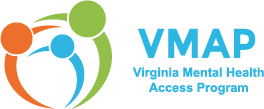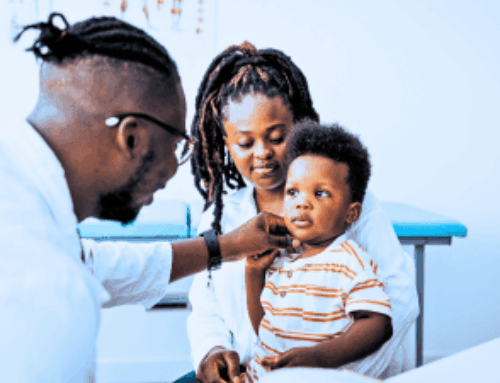How Pediatricians Can Support Postpartum Mental Health
Postpartum depression (PPD) is the most common complication after birth, affecting up to 20% of mothers within the first year after their child is born. It’s also chronically underdiagnosed, with nearly 50% of women with PPD living without a diagnosis. This condition is linked to the following symptoms:
-
- Increased anxiety, irritability, and depressive symptoms
-
- Disrupted sleep
-
- Social withdrawal
-
- Relationship conflict
-
- Increase in emergency department visits
-
- Poor adherence to well-child visits and vaccine schedules
-
- Negative impact on attachment and bond with infant
Thankfully, PPD can be diagnosed and treated effectively – but this isn’t always the case. There are many barriers between those suffering with PPD and the treatment they need, including stigma, fears of judgment or social service involvement, and concerns about the safety of antidepressants while breastfeeding.
Another barrier is the confusion between which providers are responsible for identifying and treating PPD. Ideally, mothers have 1-2 follow-up visits with their obstetrician after birth, but depression screening doesn’t always happen during these appointments. Additionally, 84% of women visit their primary care physician once a year, but these infrequent visits don’t necessarily occur during the postpartum period.
Pediatricians = Right Place, Right Time to Address Postpartum Mental Health Concerns
The specialty with the most contact with a mother after birth is actually her child’s pediatrician! Within their first 15 months, 78.2% of children visited their pediatrician six or more times, most often with their mother. Unfortunately, a 2019 survey found that only 53.9% of pediatricians screen mothers for PPD. This is due to a variety of factors, including lack of time, education, confidence, resources, and reimbursement.
The American Academy of Pediatrics (AAP) recommends that pediatricians screen mothers for PPD at 1, 2, 4, and 6-month infant visits. They don’t have a specific screening questionnaire they recommend, but the Edinburgh Postnatal Depression Scale (EPDS) and the Patient Health Questionnaire are commonly employed in these settings.
It’s important to note that universal screening without follow-up does not improve treatment access or outcomes for the mother and child. Simply giving a depressed mother a resource handout does not make it easier for her to initiate and access the help she needs. A “screen and manage” versus a “screen and refer only” approach has been found to be more helpful. The “manage” piece of this includes helping mothers access counseling and external resources, providing psychoeducation about PPD, and motivating them to seek help and engage in social support.
Offering so much support for a mother on top of managing their child’s care can be overwhelming, but there is help available to you!
VMAP for Moms+: Supporting Pediatricians Managing Postpartum Mental Health
The Virginia Mental Health Access Program (VMAP) launched VMAP for Moms+ in 2024. This expansion is designed to support Virginia prescribers who care for pregnant and postpartum individuals and/or their children, including OB/GYNs, primary care clinicians, midwives, pediatricians, psychiatrists, and nurse practitioners.
VMAP for Moms+ offers two main services:
1. VMAP for Moms+ Line – 1-(888)-371-8627 x 1
Offers free same-day mental health consultation or care navigation (within 30 minutes!) for a pregnant or postpartum individual, which can be your patient or the parent of your patient. Mental health consultations take place with perinatal psychiatrists and perinatal licensed mental health professionals, and care navigators work directly with the pregnant/postpartum individual and their family to connect them with local resources. Care navigators will also follow up to help navigate barriers, and they will send you updates on the case.
VMAP for Moms+ offers CME/CE training focused on helping you gain confidence and skills in screening, diagnosing, and treating mental health conditions in pregnancy/postpartum. Our current core offering is PEACE, which was developed by leading experts in the field and is presented in partnership with Postpartum Support Virginia.
This program exists to help pediatricians and other Virginia prescribers access support in these tough cases. Learn more about VMAP for Moms+ and how this program can support you as you care for your patients and their parents at vmapformoms.org!




